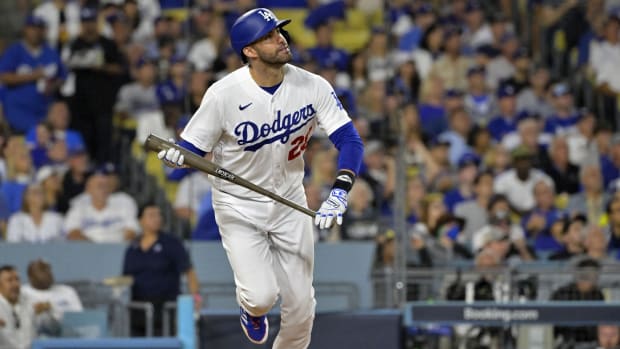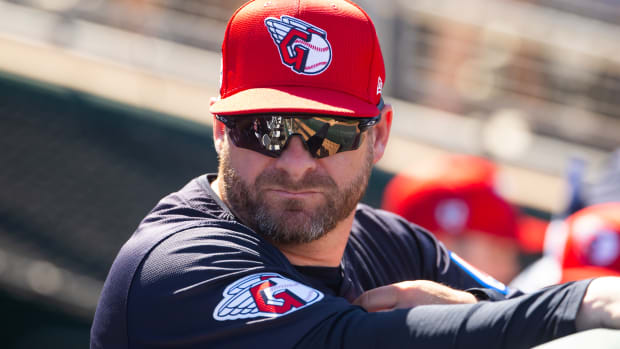Why the Winter Meetings Were Finally a Success
SAN DIEGO — Major League Baseball has been desperate for an event. This week it got one—because the sport, at last, got out of its own way.
The league markets the annual Winter Meetings as the game’s offseason showcase, complete with logo and merchandise. The official website bears a large countdown clock. But for the past few years, an alarm clock might have been more relevant.
Last year, the marquee free agents—rightfielder Bryce Harper and third baseman Manny Machado—did not sign until spring training had begun. Harper was scheduled to be the cover star of the MLB the Show video game; the company finally opted for a photo of him dressed in a white hoodie, because it could not wait any longer for him to choose a team. Harper eventually got a record $330 million over 13 years, and Machado $300 million over 10, but fans and players alike were left disheartened by the delay.
On Monday, as the meetings opened, the Nationals brought back World Series MVP Stephen Strasburg on a seven-year, $245 million deal, a record for a pitcher. On Tuesday, the Yankees shattered that mark when they signed AL Cy Young runner-up Gerrit Cole for nine years and $324 million. On Wednesday, the Angels nabbed NL MVP third-place finisher Anthony Rendon for seven years and $245 million. In a span of 56 hours, the top three free agents chose their futures and clarified the rest of the market.
So what changed? It’s hard to know for sure. Harper and Machado valued themselves much more highly than did most teams, so in the absence of a bidding war their agents had to settle for a war of attrition. Strasburg, Cole and Rendon had multiple good offers within a few weeks of the end of the World Series. The Yankees and Dodgers, traditional big spenders who often drive up the price whether or not they sign the players they are pursuing, mostly sat out the proceedings last year but were engaged this time. A few more teams, such as the Angels and Rangers, feel far enough along in their rebuilding processes to enter the fray.
The answer may come down to something a little harder to define. Baseball’s ruthless pursuit of efficiency has streamlined the game, but it has also made it less entertaining. Pitchers and hitters are both incentivized to pursue the kind of approach that leads to a sport full of strikeouts, walks and home runs. That’s the smart way to play, but that doesn’t make it fun to watch. The freezing-cold stove of the past few years is similar. It makes sense to wait out a free agent and hope his price will drop. It also makes for a boring winter.
“If you're always rational about every free agent, you will finish third on every free agent,” Dodgers president of baseball operations Andrew Friedman told the Los Angeles Times in December 2016. L.A. spent $192 million that offseason to re-sign closer Kenley Jansen, third baseman Justin Turner and lefthander Rich Hill. Perhaps there was a more efficient way to build a good club, but those players helped lead the Dodgers to back-to-back World Series.
Attendance was down in 2019, for the fourth straight year. The lowest-rated World Series game in history came this season, when Game 4 drew only a 5.9 rating. With seemingly infinite entertainment options, how can baseball convince people its marquee events are worth their time?
On Wednesday, MLB announced that it would move the draft to Omaha, the site of the NCAA Men’s College World Series, in what it called an attempt to “bring greater exposure to the event.” The league went so far as to adjust the dates of the draft so that it would not overlap with games. There has been talk of holding the GM Meetings in Las Vegas on an annual basis and attaching an awards show to them. Even the postseason structure reflects this existential fear: The league hoped the do-or-die wild-card games would generate excitement.
These are complicated solutions to a simple problem: Sports are entertainment. This year’s Winter Meetings were a success because everyone involved finally remembered that.



































